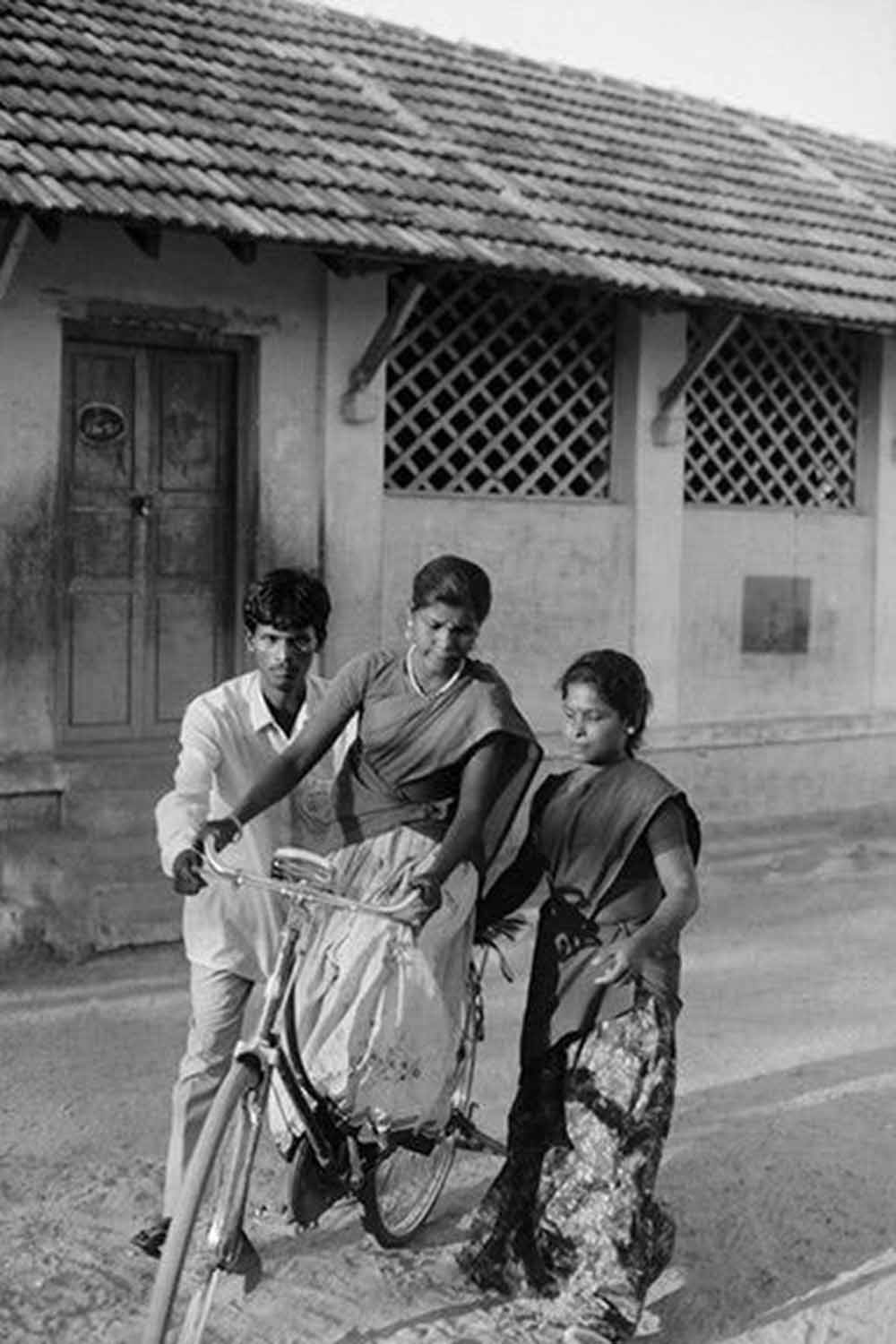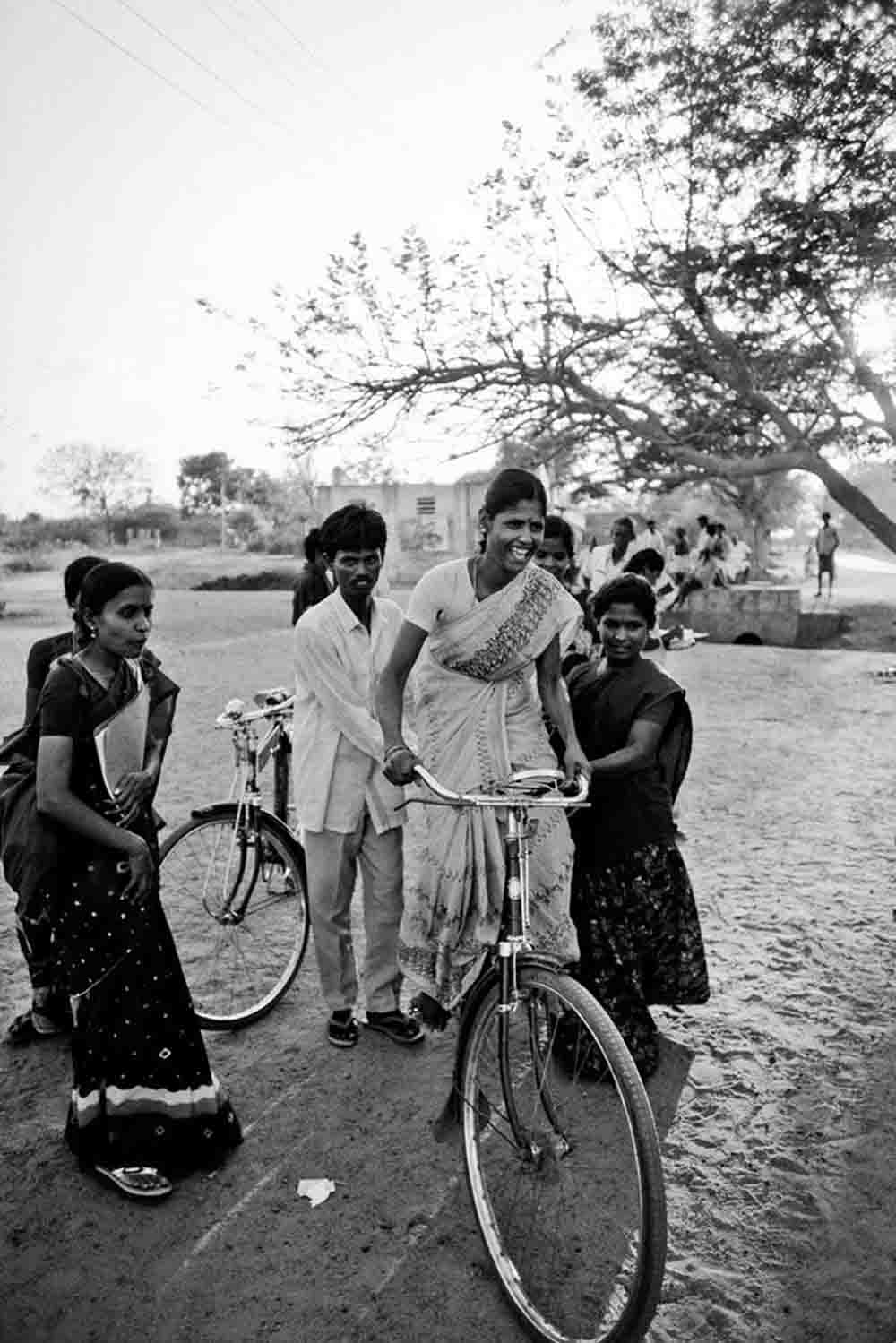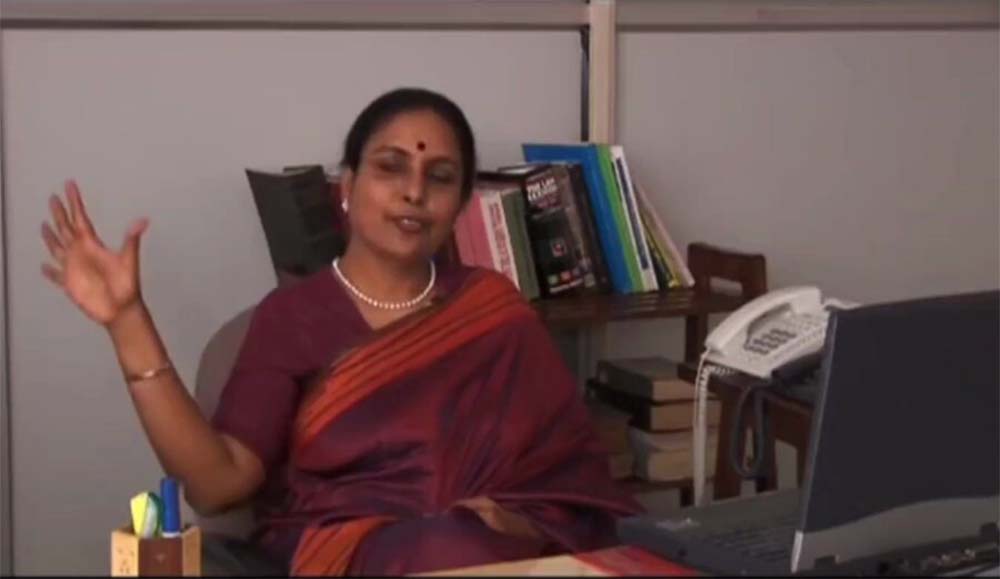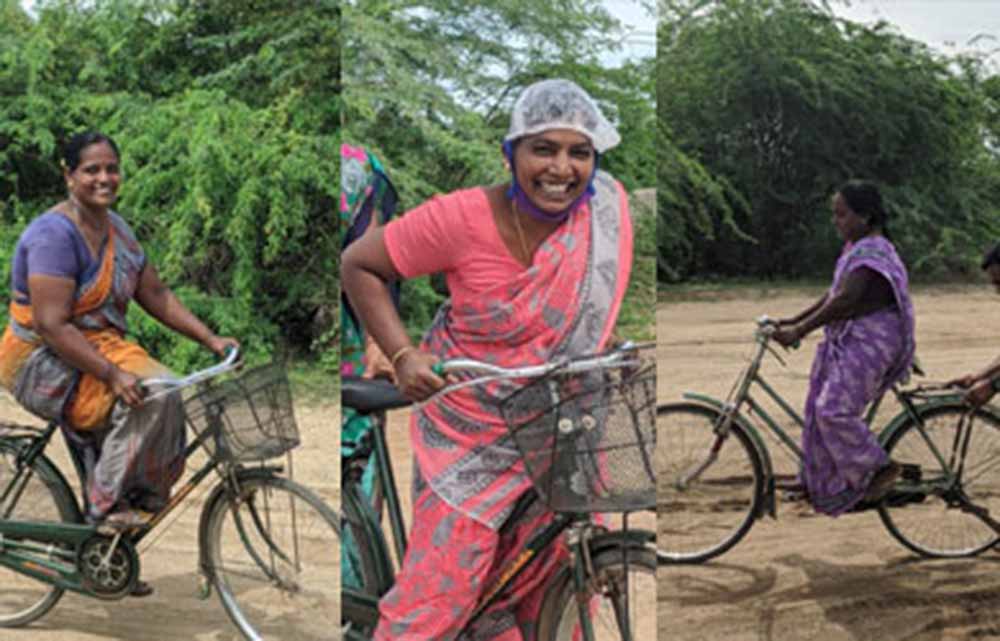Who would have thought that cycling would play a key role in a social movement? It sounds improbable, right? Not to the tens of thousands of neo-literate rural women of Pudukkottai district in Tamil Nadu! People often develop methods - sometimes unique ones - to express defiance, strike out at their backwardness, and pound at the chains that bind them.
It is in this district, considered one of the poorest ones in India, where the cycle rose to the occasion and became the chosen medium of expression for women. Over 1,00,000 neo-literate rural women took up cycling as a symbol of freedom, movement, and independence.

The movement pedalling at full speed…
The cause picked up steam in 1991, becoming a successful district-wide movement. Approximately 2 lakh individuals in the area were found to be illiterate in the first survey, with women making up 70 per cent of this population. Tamil Nadu launched the Total Literacy Campaign in Pudukkottai district in 1990 as part of the National Literacy Mission. The Tamil Nadu Science Forum and travelling street plays set the stage for this campaign to develop into a full-fledged fight for women’s empowerment and increased mobility, emancipating them from a hitherto male-dominated society.
The Government welcomed the intervention of cycling as soon as the funds began coming in. About 30,000 volunteers agreed to take part in this initiative for just ₹65 per person. This was only possible because the participants’ goal was to promote literacy, rather than to profit financially from it, as evidenced by the ‘no remuneration policy’ that was adhered to throughout the campaign.

Women ring the bell of freedom…
The project’s most notable feature was the addition of mobility as a literacy drive criterion, in addition to the standard components of reading, numeracy, functionality, and awareness.

Sheela Rani Chunkath, former district collector of Pudukkottai is the brain behind this idea. Her plan was to provide the district’s female activists with training so that literacy would spread to the interiors and these women later became known as ‘Arrivuli’. She passionately discussed the unequal opportunities that are offered to men and women. She cited the advancement of the wheel as one example where women are not as advanced as their male counterparts. She observed that women were not driving any vehicles - be it bullock carts, bikes, autorickshaws or cycles - and this lack of mobility affected their confidence to venture out and consider themselves equal to men. She set up cycle training camps within the communities to combat this notion.
It is important to understand that the goal was to raise residents’ awareness of the value, importance, and implications of education in order to circumvent the underlying causes of illiteracy. Women gained ownership rights over the quarry lands in 1991, but it took them a long time to gain these rights. Today, women are riding cycles, collecting their share of income, handling their finances, and renewing their leases — all thanks to the skills they gained in the training sessions.

Cycling has positively impacted women’s lives in a number of ways. Women who sell agricultural products, those who need to retrieve water from tanks, transport paddy to a rice mill, gather fuel and fodder, young girls heading to school, and women who want to travel anywhere at any time, for leisure or emergencies, find it extremely useful. Cycles are an efficient mode of transportation, saving money, energy, and downtime, particularly on poorly connected routes. Women in Pudukkottai use cycles in a sustainable manner; it is a vital and essential aspect of their life and is thought to have a comprehensive effect on their personalities.
Image source: Medium, Rural India, BreakThrough, The Wire